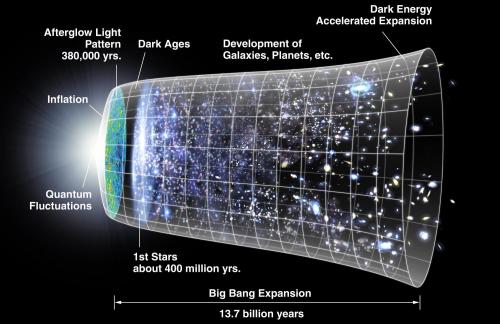
- Although the Big Bang singularity arises directly and unavoidably from the mathematics of general relativity, some scientists see it as problematic because the math can explain only what happened immediately after—not at or before—the singularity.
- Using the quantum-corrected Raychaudhuri equation, Ali and Das derived quantum-corrected Friedmann equations, which describe the expansion and evolution of universe (including the Big Bang) within the context of general relativity. Although it’s not a true theory of quantum gravity, the model does contain elements from both quantum theory and general relativity.
- In addition to not predicting a Big Bang singularity, the new model does not predict a “big crunch” singularity, either. In cosmological terms, the scientists explain that the quantum corrections can be thought of as a cosmological constant term (without the need for dark energy) and a radiation term. These terms keep the universe at a finite size, and therefore give it an infinite age.